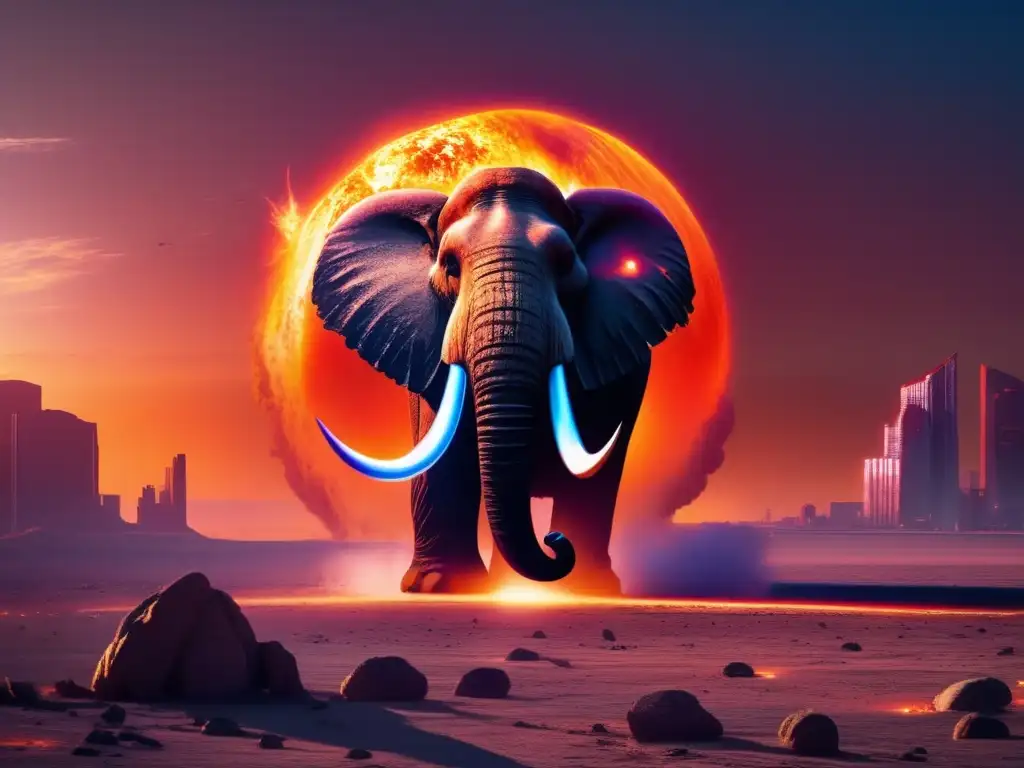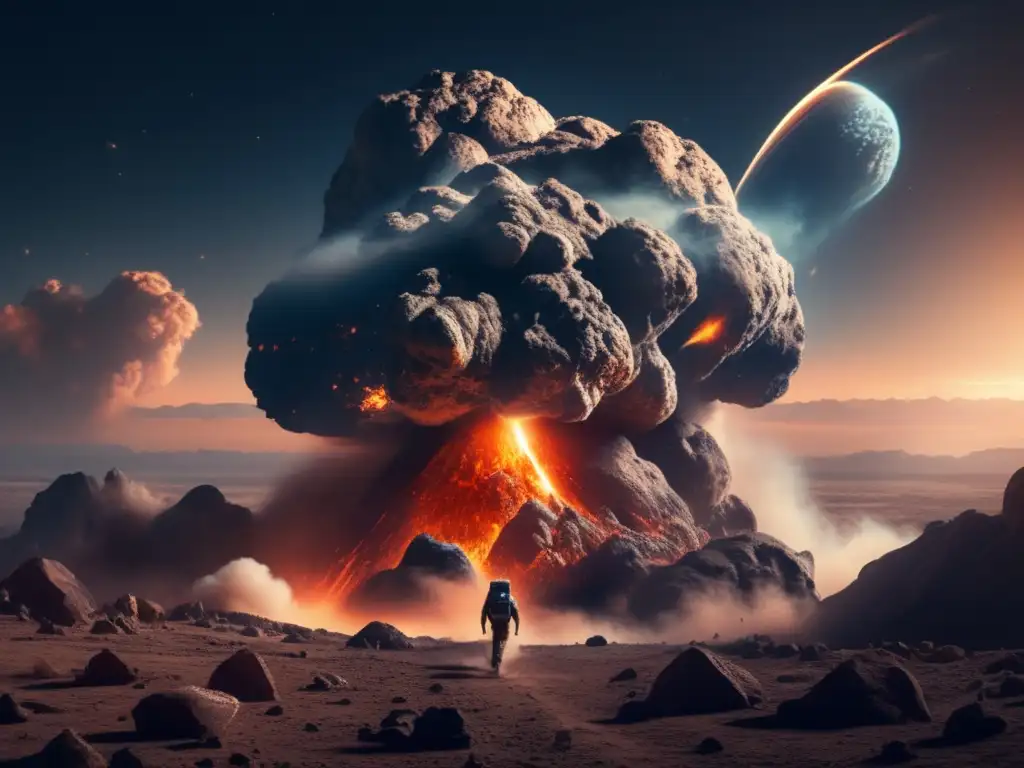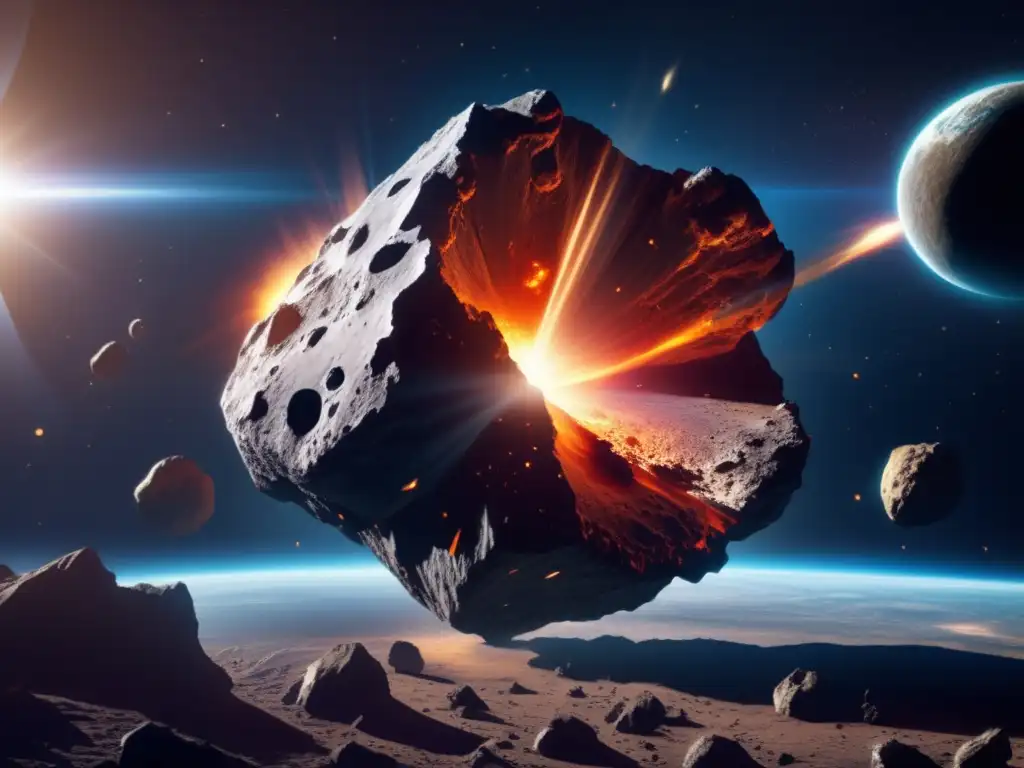Unleashing The Beast: Asteroids And Mass Extinctions

The Role of Asteroids in Mass Extinctions
Asteroids are known to have impacted Earth throughout its history, some with cataclysmic consequences. Mass extinctions are among the most significant events thought to be caused by asteroid impacts. A mass extinction event typically marks the end of an entire group of plants and animals, and these types of events are characterized by the disappearance of more than 75% of the Earth's species in a relatively short period of time. For example, the extinction of the dinosaurs is believed to have been caused by an asteroid impact that occurred around 65 million years ago.
The Global Catastrophic Effects of Asteroid Impacts
The impact of an asteroid on the Earth is a catastrophic event that can have global consequences. When an asteroid crashes into the Earth, it can cause devastating earthquakes, tsunamis, and volcanic eruptions. These events can then lead to climate changes and severe weather patterns that can affect life on Earth for years or even centuries. The initial impact also causes a large amount of debris to be thrown into the atmosphere, blocking sunlight and reducing photosynthesis in plants. This can cause a drop in global temperatures, which can have a severe impact on the food chain, ultimately leading to mass extinction events.
The Probability of Future Asteroid Impacts
While the probability of a large asteroid impacting Earth is low, it is still a possibility. NASA and other space agencies keep a watchful eye on asteroids that could potentially collide with Earth. The good news is that there are currently no known asteroids on a collision course with Earth in the near future, but there are smaller asteroids that could still cause significant damage. It is important to have systems in place to detect and deflect potential asteroid threats.
The Science of Detecting and Deflecting Asteroids
Scientists and researchers are actively working on developing methods for detecting and deflecting asteroids that pose a threat. One approach is to use ground-based telescopes and radar systems to track asteroids as they approach the Earth. Another approach is to send spacecraft to intercept an asteroid and alter its trajectory using various techniques such as nuclear explosions, kinetic impactors, or gravitational tractors. While the science behind these methods is still in its infancy, it is important to continue investing in research and development to keep Earth safe from potential future asteroid impacts
- The Role of Asteroids in Mass Extinctions
- The Global Catastrophic Effects of Asteroid Impacts
- The Probability of Future Asteroid Impacts
- The Science of Detecting and Deflecting Asteroids
Frequently Asked Questions

-
How likely is it that an asteroid will hit the Earth?
The probability of a large asteroid impacting Earth is low, but there are smaller asteroids that could still cause significant damage.
-
Can an asteroid impact lead to a mass extinction event?
Yes, mass extinction events have been caused by asteroid impacts throughout Earth's history.
-
What techniques are used to detect and deflect potentially hazardous asteroids?
Ground-based telescopes and radar systems are used to track asteroids, and spacecraft can be used to intercept and alter their trajectory using various techniques such as nuclear explosions, kinetic impactors, or gravitational tractors.
-
What are the global effects of an asteroid impact?
An asteroid impact can cause devastating earthquakes, tsunamis, and volcanic eruptions, leading to climate changes and severe weather patterns that can affect life on Earth for years or even centuries.
-
Are there currently any known asteroids on a collision course with Earth?
No, there are currently no known asteroids on a collision course with Earth in the near future.
Conclusion
Asteroids and their potential impacts on Earth are a topic of great interest and concern among scientists and the public alike. The role of asteroids in mass extinctions is clear, but there is also hope for preventing such catastrophes in the future through detection and deflection technologies. We must continue to invest in research and development to protect our planet from potential impacts while also exploring these fascinating celestial objects. Thank you for reading and please share your thoughts in the comments section below.
Additional Resources

For further reading on asteroid impacts and their global effects, check out these resources:
- NASA's Near Earth Object Program: https://www.nasa.gov/planetarydefense/neos
- Impact Earth: https://www.purdue.edu/impactearth
- The Chicxulub Impact Crater: https://www.universetoday.com/87641/the-chicxulub-impact-crater/
 The Chicxulub Impact: Unraveling The Dinosaur Extinction Mystery
The Chicxulub Impact: Unraveling The Dinosaur Extinction Mystery Meteor Showers And Asteroid Strikes: Are They Related?
Meteor Showers And Asteroid Strikes: Are They Related? The Effects Of Asteroid Strikes On Earth's Magnetic Field
The Effects Of Asteroid Strikes On Earth's Magnetic FieldIf you want to discover more articles similar to Unleashing The Beast: Asteroids And Mass Extinctions, you can visit the Asteroid Impacts category.
Leave a Reply

Articulos relacionados: